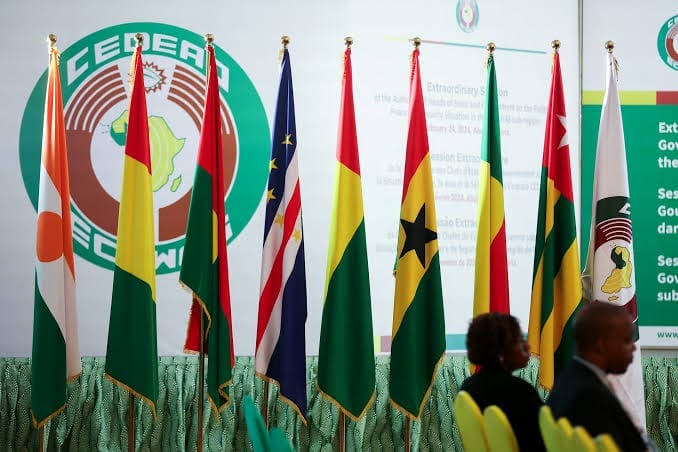Mali, Burkina Faso, and Niger are navigating economic uncertainty following their formal withdrawal from the Economic Community of West African States (ECOWAS) in January 2025. The three countries, now aligned under the newly formed Alliance of Sahel States (AES), have exited key regional trade and financial frameworks, raising concerns among investors, transporters, and agricultural exporters. According to The Africa Report, the exit concludes a year-long process triggered by political tensions and signals a significant shift in West Africa’s economic integration landscape.
ALSO READ: ECOWAS Delegation Departs Guinea-Bissau Amidst Expulsion Threat
Businesses in the Sahel region are already grappling with logistical disruptions, especially in cross-border trade. The departure means the return of customs procedures and potential tariffs along previously free corridors. According to The Conversation, over two-thirds of West Africa’s livestock trade originates from these Sahelian countries and relies heavily on coastal markets like Benin and Côte d’Ivoire. The loss of seamless access has already slowed the movement of goods, impacted agribusiness supply chains, and increased transport costs.
The fallout is also affecting infrastructure development and regional financing. ECOWAS-backed projects, including the West African Power Pool’s energy interconnectors, are facing implementation challenges. According to The Africa Report, the ECOWAS Bank for Investment and Development is reassessing its operations, as the three departing countries collectively account for a significant share of its lending portfolio and financial obligations. The uncertainty is prompting delays in disbursements and a shift in project risk assessments across the region.
ALSO READ: ECOWAS Urged to Reduce Dependence on Foreign Aid, Focus on Private Sector and Trade Integration
Inflationary pressure is rising across Sahel markets. In Niger, where nearly 80% of goods are imported through Benin, new border restrictions have tightened supply chains and driven up consumer prices. According to the United States Institute of Peace (USIP), rice prices in Niger surged by over 40% in the first half of 2025, reflecting broader concerns about food security and trade bottlenecks. Similar effects are being felt in Burkina Faso and Mali, where market volatility is straining household incomes and rural livelihoods.
ECOWAS has introduced a six-month transitional framework allowing AES countries continued access to the ECOWAS Trade Liberalization Scheme and the recognition of existing passports. However, according to BusinessDay, this arrangement is temporary, and the absence of a permanent economic cooperation model raises the risk of long-term regional fragmentation. Negotiations are ongoing ahead of a proposed ECOWAS summit later this year, but without a clear resolution, the business environment in the region is expected to remain fragile.

